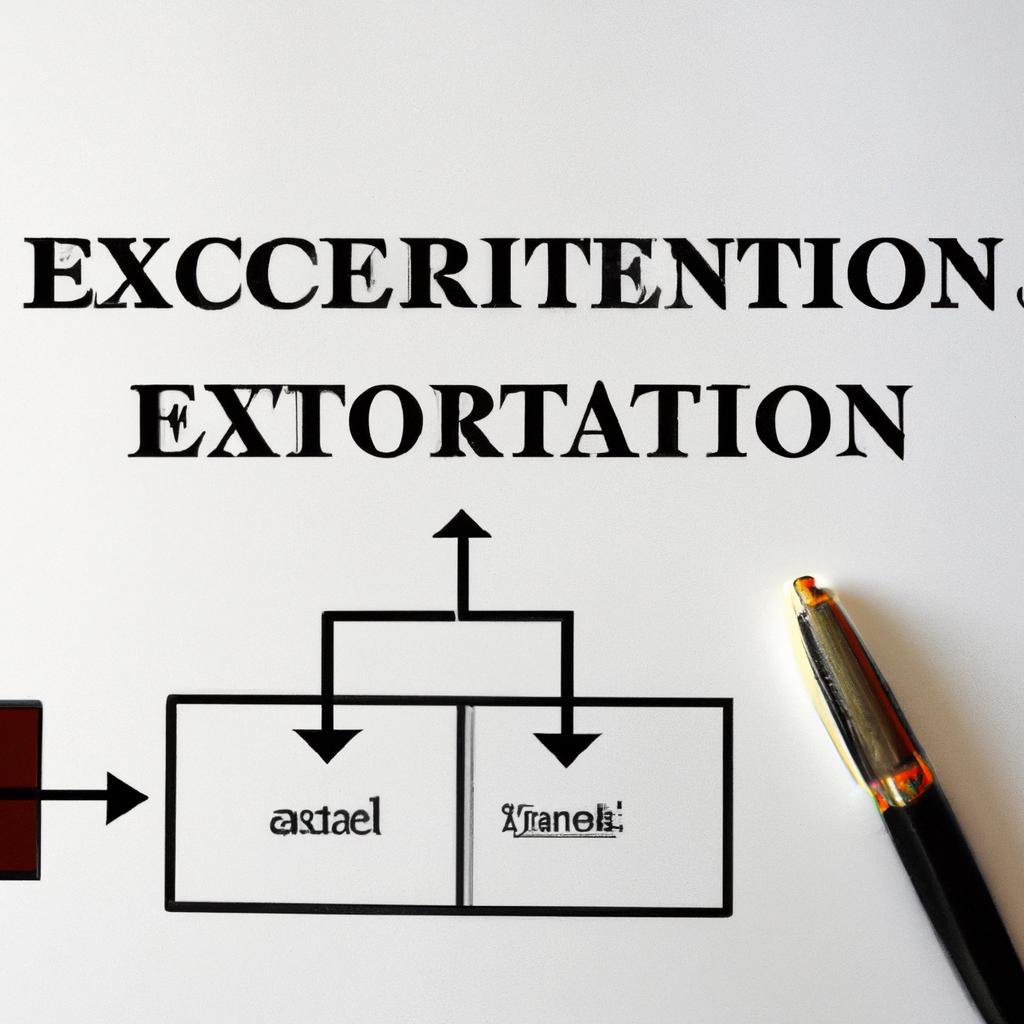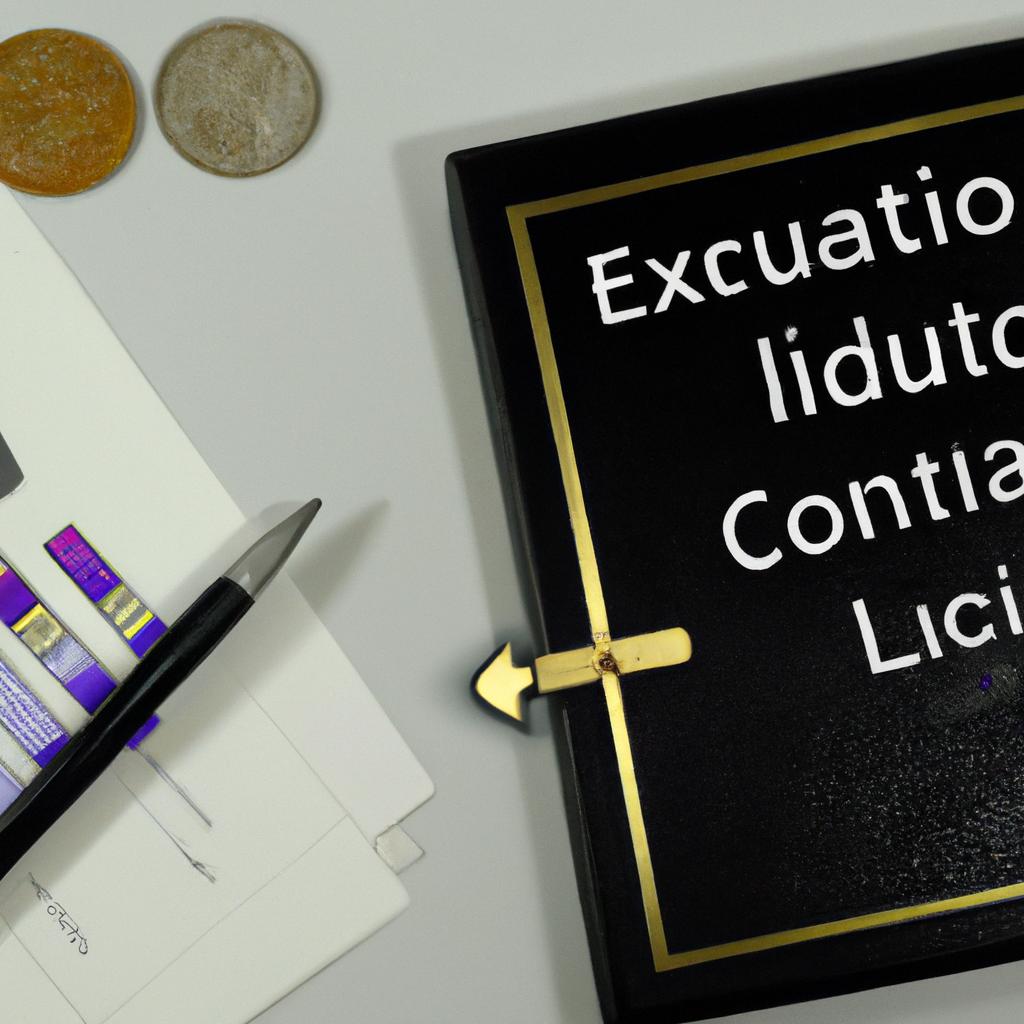In the intricate realm of estate administration, the role of an executor is crucial in ensuring the seamless distribution of assets according to the wishes of the deceased. However, what many may not be aware of is the concept of executor’s commission – a compensation mechanism for the diligent efforts of the executor in overseeing the probate process. In this article, we delve into the nuances of executor’s commission, exploring its legal implications and considerations for both executors and beneficiaries. As seasoned practitioners in estate planning and probate law at Morgan Legal Group in New York City, we bring a wealth of expertise to shed light on this often overlooked aspect of estate administration.
Understanding Executor’s Commission in Estate Administration
As an executor overseeing the administration of an estate, it is crucial to understand the concept of executor’s commission. This commission refers to the compensation that the executor is entitled to for their work in managing the decedent’s estate. In most cases, the executor’s commission is based on a percentage of the total value of the estate assets.
It is important to note that the laws governing executor’s commission can vary by state, so it is essential to consult with a knowledgeable estate planning attorney to ensure compliance with local regulations. Additionally, the executor’s commission must be approved by the probate court overseeing the estate administration process. Executors should keep detailed records of their time and efforts spent on estate administration tasks to justify their commission.

Key Factors Influencing Executor’s Commission Rates
When determining executor’s commission rates, there are several key factors that come into play. Understanding these factors is essential for both executors and beneficiaries to ensure fair compensation and transparency in the estate administration process.
Some of the include:
- Size of the Estate: The total value of the estate can impact the commission rate, with larger estates often leading to higher commissions due to the increased complexity and responsibility involved.
- Type of Assets: The composition of assets within the estate, such as real estate, investments, or business interests, can also play a role in determining the commission rate, as certain assets may require more time and effort to administer.
- State Laws: Each state has its own guidelines and regulations regarding executor’s commissions, so it is important to be aware of the specific laws that govern the estate administration process.

Maximizing Executor’s Compensation: Strategies and Recommendations
When it comes to maximizing executor’s compensation, there are several strategies and recommendations that can help ensure fair and adequate compensation for the job at hand. Executors play a crucial role in the probate process, handling important tasks such as gathering assets, paying debts, and distributing property to beneficiaries. It is important for executors to be compensated fairly for their time and efforts, and understanding the available options can help guide the decision-making process.
One strategy for maximizing executor’s compensation is to carefully review the terms of the will or trust for guidance on compensation. Some documents specify a fixed fee or percentage of the estate for the executor, while others allow for “reasonable compensation” to be determined based on the complexity of the estate and the time and effort required. Executors should also keep detailed records of their activities and time spent on estate administration, as this can be used as evidence when seeking compensation. Additionally, seeking legal counsel from an experienced estate planning attorney can provide valuable insights and guidance on how to navigate the executor compensation process.

Navigating Legal Guidelines for Executor’s Commission Calculation
When it comes to navigating the legal guidelines for executor’s commission calculation, it is crucial to understand the intricacies involved in determining fair compensation for the individual tasked with administering an estate. Executors play a vital role in carrying out the wishes of the deceased, handling assets, debts, and distributions in accordance with the decedent’s Will. The calculation of executor’s commission is based on various factors, including the size of the estate, the complexity of the assets, the time and effort required, and any specific provisions outlined in the Will.
It is important for executors to be aware of the legal guidelines governing commission calculation to ensure compliance with state laws and avoid potential disputes with beneficiaries. Executors should keep detailed records of their activities and seek professional advice when necessary to ensure accurate and fair compensation. At Morgan Legal Group, our team of experienced attorneys specializes in estate planning and probate matters, providing expert guidance to executors navigating the complexities of commission calculation.
Q&A
Q: What is an executor’s commission?
A: An executor’s commission is a fee paid to the individual who is responsible for managing and distributing the assets of a deceased person’s estate.
Q: How is an executor’s commission determined?
A: The amount of the executor’s commission is typically determined by state law or the terms of the deceased person’s will. It is usually a percentage of the total value of the estate.
Q: What is the purpose of an executor’s commission?
A: The purpose of an executor’s commission is to compensate the individual for their time, effort, and responsibility in administering the estate. It is meant to cover the costs associated with managing and distributing the assets.
Q: Are there any limitations on an executor’s commission?
A: Yes, there are often caps or limitations on the amount of an executor’s commission that can be taken from the estate. These limitations vary by state law and the terms of the will.
Q: Can an executor waive their commission?
A: Yes, an executor has the option to waive their commission if they choose to do so. This decision should be clearly documented and agreed upon by all beneficiaries of the estate.
In Conclusion
In conclusion, executors commission can vary depending on the requirements of the estate and the services provided by the executor. It is important for both parties to agree upon a fair and reasonable commission in order to ensure a smooth and efficient administration of the estate. Executors play a vital role in carrying out the final wishes of the deceased and their work should be recognized and compensated accordingly. Ultimately, understanding the complexities of executors commission can help alleviate any misunderstandings and ensure a successful estate settlement process.
 Understanding Executor’s Commission: A Comprehensive Guide
Understanding Executor’s Commission: A Comprehensive Guide
When a person passes away, their final affairs and wishes need to be carried out. This process is known as probate and is typically overseen by a designated executor. An executor is a person chosen by the deceased in their will to manage their estate and ensure that their final wishes are carried out. But what is an executor’s commission, and how does it affect the probate process? In this comprehensive guide, we will explore all aspects of an executor’s commission, including its definition, how it is calculated, and its importance in the probate process.
What is an Executor’s Commission?
An executor’s commission is a fee paid to the executor for their services in administering an estate. It is also known as an executor’s fee or compensation. The executor’s commission is usually calculated as a percentage of the estate’s total value and is typically paid from the estate’s assets after all debts and expenses have been settled.
The exact percentage of the executor’s commission may vary depending on the state laws and the terms outlined in the will. In some cases, the will may explicitly state the executor’s commission, while in others, it may be left to the court’s discretion. Executors may also petition for a higher commission if they believe the circumstances warrant it.
How is an Executor’s Commission Calculated?
As mentioned, an executor’s commission is typically calculated as a percentage of the estate’s total value. The exact percentage may vary from state to state, but it generally ranges from 1% to 5%. Some states also have a minimum and maximum limit for the executor’s commission.
For example, in California, an executor is entitled to a commission of 4% on the first $100,000 of the estate’s assets, 3% on the next $100,000, 2% on the next $800,000, and 1% on the remaining balance. In New York, the executor’s commission is 5% of the estate’s value plus 2% on any income received by the executor.
It is also worth noting that the executor’s commission is usually paid from the gross estate, not the net value. This means that the commission is paid before any taxes, debts, or expenses are deducted from the estate’s total value.
The Importance of Executor’s Commission
The executor’s commission is an important aspect of the probate process as it compensates the executor for their time, effort, and expertise in managing the estate. Being an executor is not an easy task, as it involves a lot of responsibilities, including:
1. Inventory and Valuation of Assets: The executor is responsible for taking an inventory of all the deceased’s assets and having them appraised to determine their value.
2. Paying Debts and Expenses: The executor is also tasked with paying off any debts or expenses owed by the deceased.
3. Filing Taxes: The executor must file the deceased’s final tax return and any estate tax returns if necessary.
4. Distributing Assets: Once all debts and taxes have been settled, the executor is responsible for distributing the remaining assets to the beneficiaries as outlined in the will.
5. Handling Legal Proceedings: The executor may also be required to represent the estate in legal proceedings if any disputes arise.
Given these responsibilities, it is only fair that an executor be compensated for their time and effort. The executor’s commission is also meant to incentivize the executor to carry out their duties diligently and efficiently. Without this compensation, many people may be hesitant to take on the role of executor, which could delay the probate process.
Tips for Executors
If you have been named as an executor in someone’s will, here are some helpful tips to keep in mind:
1. Familiarize yourself with the will and the deceased’s final wishes.
2. Keep accurate records of all expenses and transactions related to the estate.
3. Communicate regularly with the beneficiaries to keep them updated on the progress of the probate process.
4. Seek assistance from professionals, such as accountants or estate lawyers, if needed.
5. Stay organized and prioritize tasks to ensure everything is completed in a timely manner.
Case Study: Executor’s Commission in Action
To better understand how an executor’s commission works, let’s look at a hypothetical case study. John’s grandmother, Mary, passed away, leaving behind an estate worth $500,000. John was named as the executor in her will, and the will explicitly states that John is entitled to a 3% commission on the estate’s value.
After gathering all the necessary documents and assets, John calculates the estate’s total value to be $500,000. Applying the 3% commission outlined in the will, John would receive $15,000 as his executor’s commission.
Final Thoughts
Being an executor is not an easy task, and executors should be compensated for their time and effort. The executor’s commission serves as a fair and impartial way to compensate the executor for their services. If you have been named as an executor in someone’s will, it is essential to familiarize yourself with the laws in your state regarding executor’s commission to ensure you are fairly compensated for your time and effort.

